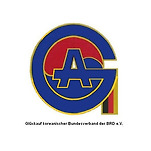<div class="figure-img" data-ke-type="image" data-ke-style="alignCenter" data-ke-mobilestyle="widthOrigin"><img src="https://t1.daumcdn.net/cafeattach/1EeJk/226370755cb083c920641748be27cc1b7fdfa34a" class="txc-image" data-img-src="https://t1.daumcdn.net/cafeattach/1EeJk/226370755cb083c920641748be27cc1b7fdfa34a" data-origin-width="1920" data-origin-height="1080"></div><p>&#160;</p><p>Yi&#160;Yuk-sa,&#160;Intellect&#160;in&#160;Action&#160;and&#160;a&#160;Resistant&#160;poet <br><br>Yi&#160;Yuk-sa,&#160;a&#160;national&#160;poet&#160;who&#160;romanticized&#160;independence, <br>Before&#160;becoming&#160;a&#160;poet,&#160;actually,&#160;he&#160;fought&#160;for&#160;the&#160;independence&#160;of&#160;Korea.&#160; <br><br>He&#160;was&#160;born&#160;in&#160;Andong,&#160;Gyeongsangbuk-do,&#160;the&#160;birthplace&#160;of&#160;the&#160;first&#160;righteous&#160;army&#160;against&#160;Japan,&#160;and&#160;a&#160;descendant&#160;of&#160;Toegye&#160;Yi&#160;Hwang,&#160;the&#160;emblematic&#160;scholar&#160;of&#160;the&#160;Joseon&#160;Dynasty. <br>Based&#160;on&#160;the&#160;spirits&#160;of&#160;the&#160;righteous&#160;army&#160;and&#160;scholars,&#160;he&#160;and&#160;his&#160;brothers&#160;laid&#160;the&#160;groundwork&#160;for&#160;independence,&#160;which&#160;is&#160;the&#160;‘action&#160;and&#160;practice’.&#160; <br><br>In&#160;1927,&#160;after&#160;the&#160;attempted&#160;bombing&#160;of&#160;the&#160;Daegu&#160;Joseon&#160;Bank,&#160;he&#160;was&#160;arrested&#160;by&#160;the&#160;Japanese&#160;with&#160;his&#160;brothers&#160;despite&#160;having&#160;no&#160;involvement.&#160; <br>Using&#160;prisoner&#160;number&#160;264&#160;(yiyuksa&#160;in&#160;Korean)&#160;given&#160;to&#160;him&#160;while&#160;he&#160;was&#160;cruelly&#160;tortured&#160;in&#160;prison,&#160;he&#160;began&#160;his&#160;full-scale&#160;struggle&#160;against&#160;Japan.&#160; <br><br>During&#160;the&#160;1930s,&#160;the&#160;independence&#160;movement&#160;took&#160;a&#160;turn&#160;toward&#160;armed&#160;struggle,&#160;with&#160;Lee&#160;Bong-chang&#160;and&#160;Yun&#160;Bong-gil&#160;leading&#160;the&#160;way.&#160;Yi&#160;Yuk-sa&#160;also&#160;went&#160;along&#160;with&#160;this&#160;trend.&#160; <br>After&#160;joining&#160;the&#160;Korean&#160;Revolutionary&#160;Military&#160;and&#160;Political&#160;Cadre&#160;School&#160;run&#160;by&#160;the&#160;Uiyeoldan&#160;(Heroic&#160;Corps),&#160;he&#160;learned&#160;shooting,&#160;disguises,&#160;and&#160;assassination&#160;techniques&#160;to&#160;engage&#160;in&#160;risky&#160;undercover&#160;missions&#160;at&#160;home&#160;and&#160;abroad.&#160; <br>As&#160;going&#160;through&#160;repeated&#160;arrests&#160;and&#160;imprisonment&#160;due&#160;to&#160;heightened&#160;surveillance&#160;of&#160;the&#160;Japanese,&#160;however,&#160;he&#160;realized&#160;the&#160;limits&#160;of&#160;armed&#160;struggle&#160;and&#160;started&#160;seeking&#160;an&#160;alternative&#160;approach&#160;to&#160;fight&#160;against&#160;the&#160;Japanese&#160;by&#160;capturing&#160;the&#160;spirit&#160;of&#160;a&#160;nation.&#160; <br>It&#160;was&#160;poetry.&#160; <br><br>Becoming&#160;a&#160;poet&#160;in&#160;his&#160;thirties,&#160;Yi&#160;Yuk-sa&#160;delivered&#160;hope&#160;for&#160;independence&#160;to&#160;the&#160;nation&#160;through&#160;his&#160;poetry&#160;with&#160;beautiful&#160;lyricism&#160;and&#160;strong&#160;determination&#160;amid&#160;harsh&#160;realities.&#160; <br>Despite&#160;his&#160;deteriorating&#160;health&#160;from&#160;his&#160;extended&#160;imprisonment,&#160;he&#160;was&#160;preparing&#160;for&#160;another&#160;armed&#160;struggle&#160;within&#160;the&#160;country&#160;when&#160;being&#160;arrested&#160;once&#160;more.&#160;&#160;He&#160;was&#160;then&#160;sent&#160;to&#160;China,&#160;where&#160;he&#160;died&#160;in&#160;prison.&#160; <br><br>As&#160;a&#160;poet,&#160;he&#160;never&#160;published&#160;a&#160;book&#160;of&#160;poetry&#160;during&#160;his&#160;lifetime.&#160; <br>This&#160;was&#160;because&#160;he&#160;preferred&#160;to&#160;resist&#160;with&#160;his&#160;pen&#160;rather&#160;than&#160;leave&#160;his&#160;name&#160;in&#160;the&#160;pro-Japanese&#160;literary&#160;community&#160;at&#160;that&#160;time.&#160; <br>Yi&#160;Yuk-sa,&#160;who&#160;decided&#160;to&#160;write&#160;his&#160;poetry&#160;without&#160;leaving&#160;his&#160;last&#160;testament.&#160; <br>Let’s&#160;think&#160;about&#160;the&#160;independence&#160;he&#160;dreamed&#160;of&#160;by&#160;reading&#160;his&#160;last&#160;poem&#160;written&#160;in&#160;a&#160;cold&#160;prison&#160;cell. <br><br>#대한이살았다&#160;#KB국민은행&#160;#국민은행&#160;#이육사&#160;#이원록&#160;#숨은독립영웅찾기&#160;#청포도&#160;#함은정&#160;#광야 <br><br>Link&#160;:&#160;<a href="https://youtu.be/I4rc7Hu6djQ?si=jKESJm4UnNev3Tdp" target="_blank" class="ke-link">https://youtu.be/I4rc7Hu6djQ?si=jKESJm4UnNev3Tdp</a></p>
<!-- -->
카페 게시글
우리들의 이야기
Yi Yuk-sa, Intellect in Action and a Resistant poet
다음검색



